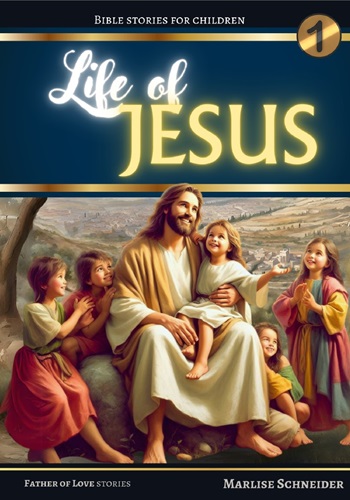The Wisdom of God Crucified in Sophia
On October 22nd, 2016 the SDA church in Bulgaria, Sofia, Slatina quarter a church meeting took place where it was suggested that Deyan Delchev shall be disfellowshipped. The suggestion was based on the following points:
1. A difference in his view with the official church doctrine of the Trinity, as it was stated that he “does not accept the full divinity of the third person of the Godhead – the Holy Spirit.“
2. Transgression of article 10 of the Church Manual, according to which he did not respect the church authority and order.
After the suggestion was entered, word was given to Deyan Delchev to give an expression to his views. Concerning point 2, he stated that he had not aim to oppose the authority of the church, and he apologized for those times when he was not able to hold himself within the boundary of the church ethic. Deyan shared his consideration in connection to the decision that would be taken at that meeting, that it was not just a decision about his case but rather a decision whether the church would accept or deny the only begotten Son of God. Initially he quoted the present church doctrine on the Godhead: „I believe in one God – Father, Son and Holy Spirit – a unity of three co-eternal persons“, and then he stated that indeed the Bible speaks about one God (Deut. 6:4 quoted), but that that God was the Father (1 Cor. 8:6; John 17:3 quoted) and that He was the only one source of life (1 Tim. 6:16 quoted).
Then the attention was drawn to the Son of God's identity, referencing Luke 10:21-24:
In that hour Jesus rejoiced in spirit, and said, I thank thee, O Father, Lord of heaven and earth, that thou hast hid these things from the wise and prudent, and hast revealed them unto babes: even so, Father; for so it seemed good in thy sight. 22 All things are delivered to me of my Father: and no man knoweth who the Son is, but the Father; and who the Father is, but the Son, and he to whom the Son will reveal him. 23 And he turned him unto his disciples, and said privately, Blessed are the eyes which see the things that ye see: 24 For I tell you, that many prophets and kings have desired to see those things which ye see, and have not seen them; and to hear those things which ye hear, and have not heard them.
Deyan claimed that the Father alone is able to reveal the true identity of the Son, and that all things that the Son possesses, He had received from His Father. He also added that the disciples were blessed because they believe what the Father revealed to them. A passage was read that supports that claim - Matt. 16:13-18:
When Jesus came into the coasts of Caesarea Philippi, he asked his disciples, saying, Whom do men say that I the Son of man am? 14 And they said, Some say that thou art John the Baptist: some, Elias; and others, Jeremias, or one of the prophets. 15 He saith unto them, But whom say ye that I am? 16 And Simon Peter answered and said, Thou art the Christ, the Son of the living God. 17 And Jesus answered and said unto him, Blessed art thou, Simon Bar–jona: for flesh and blood hath not revealed it unto thee, but my Father which is in heaven. 18 And I say also unto thee, That thou art Peter, and upon this rock I will build my church; and the gates of hell shall not prevail against it.
Jesus' question „But whom say ye that I am?“ is a question concerning the Son of God's identity, and Peter's response was that single foundation whereupon the church could be secured during the time of the approaching storm. The Father revealed to Peter Christ's real identity as the Son of the living God. A question arose: „Since when God's Son is the Son of God?“ Proverbs 8:22-26:
The LORD possessed me in the beginning of his way, before his works of old. 23 I was set up from everlasting, from the beginning, or ever the earth was. 24 When there were no depths, I was brought forth; when there were no fountains abounding with water. 25 Before the mountains were settled, before the hills was I brought forth: 26 While as yet he had not made the earth, nor the fields, nor the highest part of the dust of the world.
The eighth chapter of Proverbs shows clearly when the Son was begotten. Hebrew 1:1-5 reads:
God, who at sundry times and in divers manners spake in time past unto the fathers by the prophets, 2 Hath in these last days spoken unto us by his Son, whom he hath appointed heir of all things, by whom also he made the worlds; 3 Who being the brightness of his glory, and the express image of his person, and upholding all things by the word of his power, when he had by himself purged our sins, sat down on the right hand of the Majesty on high; 4 Being made so much better than the angels, as he hath by inheritance obtained a more excellent name than they. 5 For unto which of the angels said he at any time, Thou art my Son, this day have I begotten thee? And again, I will be to him a Father, and he shall be to me a Son?
The person in verse one is God the Father, and Christ received all things as inheritance from Him.
Adventist pioneers applied Psalm 139:1-7, when they spoke about the Holy Spirit in the Fundamental principles of the faith that were published annually in the period 1872-1914 in the Adventists Yearbook:
O LORD, thou hast searched me, and known me. 2 Thou knowest my downsitting and mine uprising, thou understandest my thought afar off. 3 Thou compassest my path and my lying down, and art acquainted with all my ways.*n1 4 For there is not a word in my tongue, but, lo, O LORD, thou knowest it altogether. 5 Thou hast beset me behind and before, and laid thine hand upon me. 6 Such knowledge is too wonderful for me; it is high, I cannot attain unto it. 7 Whither shall I go from thy spirit? or whither shall I flee from thy presence?
The presence of God through His Spirit is a personal presence and this is why on some other places in Scripture we read that the Spirit was offended or lied (for example by Ananias). The next passage quoted was John 14:16-22:
And I will pray the Father, and he shall give you another Comforter, that he may abide with you for ever; 17 Even the Spirit of truth; whom the world cannot receive, because it seeth him not, neither knoweth him: but ye know him; for he dwelleth with you, and shall be in you. 18 I will not leave you comfortless: I will come to you. 19 Yet a little while, and the world seeth me no more; but ye see me: because I live, ye shall live also. 20 At that day ye shall know that I am in my Father, and ye in me, and I in you. 21 He that hath my commandments, and keepeth them, he it is that loveth me: and he that loveth me shall be loved of my Father, and I will love him, and will manifest myself to him. 22 Judas saith unto him, not Iscariot, Lord, how is it that thou wilt manifest thyself unto us, and not unto the world?
Though it seems as if in the first part of Christ's words the Spirit is someone else, verse 18 reveals that it was Jesus Himself coming to the disciples through His Spirit. The disciples' reaction in verse 22 confirms this conclusion, even when they did not completely understand Christ's spiritual manifestation, (as it is also verified in The Spirit of Prophecy). Romans 8:9-11 underlines that the Holy Spirit is actually the Spirit of Christ and the Spirit of God, and we need this Spirit of the Son so that we might be adopted as children of God:
But ye are not in the flesh, but in the Spirit, if so be that the Spirit of God dwell in you. Now if any man have not the Spirit of Christ, he is none of his. 10 And if Christ be in you, the body is dead because of sin; but the Spirit is life because of righteousness. 11 But if the Spirit of him that raised up Jesus from the dead dwell in you, he that raised up Christ from the dead shall also quicken your mortal bodies by his Spirit that dwelleth in you.
Similar idea to that we find also in Paul's epistle to the Galatians 4:4-6:
But when the fulness of the time was come, God sent forth his Son, made of a woman, made under the law, 5 To redeem them that were under the law, that we might receive the adoption of sons. 6 And because ye are sons, God hath sent forth the Spirit of his Son into your hearts, crying, Abba, Father.
When Deyan quit his speech, the pastor of the church said that the quoted passages are available in a written form, and that the church board had been already acquainted with them. They were accessible to the lay people but it was evident that they had been extracted from their context so that they might sustain a certain notion. It was reminded that the meeting's main aim was not to discuss on the doctrine but to make a decision concerning suggestion of the church board.
The word was also given to one of the elders. He testified about his own position by telling about his own study on the issue and presenting some historical intelligence touching the gradual change of the church teaching – from belief in the begotten Son to a belief in the Trinity. He mentioned that not until 1931, the term Trinity appeared in Adventist's fundamental beliefs, but that in reality the change had taken place not until 1980.
The pastor again appealed to the members of the church to take their position concerning the offer of the church board. Some statements followed done by lay people having their own position and impressions. Some questions about the general state of the church were raised.
A consideration of the church board was shared in respect to a baptism that was conducted outside the church's boundaries, which was related to Deyan. One church member added that Deyan had broken the order by organizing a morning study group outside the time that was arranged for the worship service, where the Sabbath school lesson was allegedly explored, but that in reality he had tried to carry out his ideas there. An opinion was also expressed that Deyan presents Christ as a created being.
It was explained that the morning Sabbath meetings were initiated by a new believer who desired that for the morning hours of the Sabbath to be utilized for Bible study. It was made clear that this company did not explored the Sabbath school lesson but themes on which the former pastor had also been present and he had not found anything disturbing. Concerning the baptism, it was noted that there had been not a preliminary plan, but that the people being baptized desired that after it had been denied for them to be conducted within the boundaries of the church organization.
Deyan requested the word and expressed his view about Christ as begotten of God, and not created. He quoted from memory the following passage from the writings of Ellen White:
“...A complete offering has been made; for "God so loved the world, that he gave his only-begotten Son,"-- not a son by creation, as were the angels, nor a son by adoption, as is the forgiven sinner, but a Son begotten in the express image of the Father's person, and in all the brightness of his majesty and glory, one equal with God in authority, dignity, and divine perfection. In him dwelt all the fullness of the Godhead bodily. {ST, May 30, 1895 par. 3} Е.
Another elder took the word and stated that the church is chosen by God and follows a specific order. The members of the General Conference are led by the Holy Spirit when they constitute the church teaching and individual expression should be submitted to the established order of the church. A passage was read from the Spirit of prophecy concerning the order in the church and the danger of raising personal opinions over the common decisions of the church community.
Deyan desired to read the following from the Testimonies, Vol. 5, chapter 85:
Peter exhorts his brethren to "grow in grace, and in the knowledge of our Lord and Saviour Jesus Christ." Whenever the people of God are growing in grace, they will be constantly obtaining a clearer understanding of His word. They will discern new light and beauty in its sacred truths. This has been true in the history of the church in all ages, and thus it will continue to the end. But as real spiritual life declines, it has ever been the tendency to cease to advance in the knowledge of the truth. Men rest satisfied with the light already received from God's word and discourage any further investigation of the Scriptures. They become conservative and seek to avoid discussion.
The fact that there is no controversy or agitation among God's people should not be regarded as conclusive evidence that they are holding fast to sound doctrine. There is reason to fear that they may not be clearly discriminating between truth and error. When no new questions are started by investigation of the Scriptures, when no difference of opinion arises which will set men to searching the Bible for themselves to make sure that they have the truth, there will be many now, as in ancient times, who will hold to tradition and worship they know not what.
After the words in Acts 5:34-39 were read, a call was made to proceed in voting. The meeting voted on behalf of Deyan Delchev's disfellowship with a poll 20 “for” and 19 „against“.
Several days after the proceedings in the church we were reminded about sister White's experience of disfellowship from the Methodist church along with 6 other members among whom were her brother and father:
"This is high authority for our faith. Jesus and His apostles dwell upon the event of the second advent with joy and triumph; and the holy angels proclaim that Christ, who ascended to heaven, shall come again. This is our offense, believing the word of Jesus and His disciples. This is a very old doctrine, and bears no taint of heresy." {1T 42.1}
The minister did not attempt to refer to a single text that would prove us in error, but excused himself on the plea of a want of time. He advised us to quietly withdraw from the church and avoid the publicity of a trial. We were aware that others of our brethren were meeting with similar treatment for a like cause, and we did not wish it understood that we were ashamed to acknowledge our faith, or were unable to sustain it by Scripture; so my parents insisted that they should be acquainted with the reasons for this request. {1T 42.2}
The only answer to this was an evasive declaration that we had walked contrary to the rules of the church, and the best course would be to voluntarily withdraw from it to save a trial. We answered that we preferred a regular trial, and demanded to know what sin was charged to us, as we were conscious of no wrong in looking for and loving the appearing of the Saviour. {1T 42.3}
Not long after, we were notified to be present at a meeting to be held in the vestry of the church. There were but few present. The influence of my father and his family was such that our opposers had no desire to present our case before a larger number of the congregation. The single charge preferred was that we had walked contrary to their rules. Upon our asking what rules we had violated, it was stated, after a little hesitation, that we had attended other meetings, and had neglected to meet regularly with our class. We stated that a portion of the family had been in the country for some time past, that none who remained in the city had been absent from class meeting more than a few weeks, and they were morally compelled to remain away because the testimonies they bore met with such marked disapprobation. We also reminded them that certain persons who had not attended class meeting for a year were yet held in good standing. {1T 42.4}
It was asked if we would confess that we had departed from their rules, and if we would also agree to conform to them in the future. We answered that we dared not yield our faith or deny the sacred truth of God; that we could not forego the hope of the soon coming of our Redeemer; that after the manner which they called heresy we must continue to worship the Lord. My father in his defense received the blessing of God, and we all left the vestry with free spirits, happy in the consciousness of right and the approving smile of Jesus. {1T 43.1}
The next Sunday, at the commencement of the love feast, the presiding elder read off our names, seven in number, as discontinued from the church. He stated that we were not expelled on account of any wrong or immoral conduct, that we were of unblemished character and enviable reputation, but we had been guilty of walking contrary to the rules of the Methodist Church. He also declared that a door was now open, and all who were guilty of a similar breach of the rules would be dealt with in like manner. {1T 43.2}
There were many in the church who waited for the appearing of the Saviour, and this threat was made for the purpose of frightening them into subjection. In some cases this policy brought about the desired result, and the favor of God was sold for a place in the church. Many believed, but dared not confess their faith, lest they should be turned out of the synagogue. But some left soon afterward and joined the company of those who were looking for the Saviour. {1T 43.3}
At this time the words of the prophet were exceedingly precious: "Your brethren that hated you, that cast you out for My name's sake, said, Let the Lord be glorified: but He shall appear to your joy, and they shall be ashamed." {1T 43.4}




